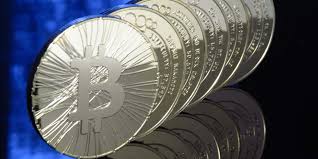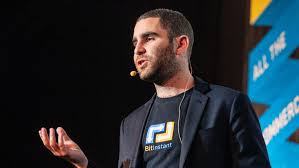bitcoin miami arrest

The archived article you requested,,is only available for Bloomberg Professional Service subscribers.If you believe that you may have received this message in error please let us know.Ritz-Carlton Is Building the Anti-Cruise Ship Google Will Stop Reading Your Emails for Gmail Ads Target Begins Removing Hampton Creek's Products From Stores Vancouver Mansion Lists for Record $48 Million America Is Now a ‘Second Tier’ Country.Prosecutors charged that Espinoza violated Florida statutes on money laundering and for operating an unlicensed money transmitting business.But the defense has argued that these laws do not apply to Espinoza's case, because he was not selling currency — he was selling bitcoin."It'sjust like you selling your own personal property," Rene Palomino Jr., Espinoza's attorney, said in a court filing."Since bitcoins are 'goods,' Espinoza's alleged conduct is excluded from the definition of the term 'money transmitter' " under both state and federal law.The case highlights a conundrum that has confused digital currency companies and state regulators alike: how to deal with a digital asset that is not a legal tender but can still hold value."Florida

is dealing with the same definitional issues that many other states are dealing with, and that is how the terms currency, money, money transmission and even monetary value are defined," said Carol Van Cleef, a partner at Manatt, Phelps & Phillips.The question is being addressed in various ways by the states' governing bodies.North Carolina's legislature on Monday passed a bill to modify the definition of money transmitters to account for virtual currency companies.In New York, the state's financial regulator took the matter into its own hands last year by creating the BitLicense, which implicitly acknowledges that bitcoin is a store of value.Even federal regulators are divided about how to address bitcoin: the Internal Revenue Service regards it as property, whereas the Treasury Department's Financial Crimes Enforcement Network regulates it as a currency."Thestate and federal government is highly fragmented and each seem to have their own view on this," said Perianne Boring, the founder and president of the Chamber of Digital Commerce."At

the Chamber, we recognize bitcoin as a digital asset because depending on the use case it can take on characteristics of all of the above" — from a property or commodity to a currency or securities instrument, Boring added.In 2008, Florida changed its definition of money transmitter to account for companies dealing with virtual currency — but the modification was not wide-ranging enough, according to Van Cleef."Florida
selachii llp bitcoinactually did intend to cover digital currencies," she said.But it did not address how money exchanges — which cannot be performed without a license — could account for virtual currencies, she added."If
bitcoin legal in japanyou're giving me the digital currency in exchange for [dollars] in a face-to-face transaction, you're not moving it to another place or you're not moving it to another person," Van Cleef said.The matter has been placed in the hands of Judge Teresa Pooler of the Miami-Dade Circuit of Florida, who is expected to deliver a ruling on the issue Friday."The
bitcoin magyar
status of the law has not caught up with technology," Palomino said."Everybody thought [bitcoin] was going to be a fad, it would just go away.I think it's going to stay."Ina press release after the arrests, authorities acknowledged the novelty of the case."Allof us in law enforcement know that criminals are always seeking new ways to make their activities profitable," said State Attorney Katherine Fernandez Rundle, noting that the U.S.Secret Service had participated in the investigation."BitCoins are just a new tool in the cyber criminal's toolkit."Her office declined to comment further on the case.Beyond Florida, the case could serve as an example for other states, digital currency advocates say."Ifthe judge rules that bitcoin is a currency , it would only apply in that state," Boring said."However, other states could use that decision or ruling as persuasive material in their own legal systems or legislation to guide their own policy making or case decisions."Thecase is likely to be litigated after Pooler's ruling.

Both parties confirmed they would go to trial if they lost.Venezuelan police have arrested eight bitcoin miners in the last two week, and the country's leading bitcoin exchange announced yesterday that it's suspending operations because its bank account was revoked.The recent spate of incidents is causing members of the country's bitcoin community to take new measures to conceal their activities.Yesterday the Policía Nacional Bolivariana (PNB) announced that two men identified as Adan Erick Tapia Salas, 37, and Edwald Antonio Tapia Salas, 31, were arrested in Caracas.PNB officers caught the two men through the online marketplace MercadoLibre, where they were attempting to sell bitcoin mining equipment.Bitcoin mining and the buying and selling of computer equipment isn't illegal in Venezuela, and it's not clear if the authorities have filed formal charges in the case.In a separate incident, the PNB raided a warehouse in the city of Valencia last Friday with 11,000 bitcoin mining computers.

They arrested Eusebio Gómez Henríquez, 51, and Andrés Alejandro Carrero Martínez, 35, who were accused of cybercrime, financing terrorism, stealing electricity, and exchange fraud.An official statement linked the two men to a criminal network operating from Poland.As the Venezuelan bitcoin news site CriptoNoticias reports, apparently the basis for this claim is that many of the discovered mining computers were purchased from a Polish seller, who advertised them through the online forum BitcoinTalk in August of 2015.One of the arrested miners, Andrés Carrero, attended Miami Dade College and worked on and off in commercial real estate sales in the Miami area for over a decade before "disappearing about a year ago," according to the leasing manager at his former company.Carrero also ran a company called North American Merchant Services headquartered in Coral Gables, Florida, which offered foreigners the opportunity to set up mining computers in his operations center in exchange for a revenue split.

In yet another incident, agents from the Cuerpo de Investigaciones Científicas Penales y Criminalisticas (CICPC) arrested four bitcoin miners in the town of Charallave on January 25.The discovery of the massive mining facility in Valencia is causing a backlash that's making it harder for Venezuelans to exchange bitcoins for local currency.SurBitcoin, the country's leading exchange, announced yesterday that its bank account was being revoked and that users should withdraw their money from the service immediately to avoid losing funds.The company says it expects to be operating again in "approximately two weeks."In the meantime, it encouraged customers to use the peer-to-peer trading site LocalBitcoins.Rodrigo Souza, the founder and CEO of the company that runs SurBitcoin's exchange platform, attributed the temporary closure to the recent arrests in Valencia."When it was found that there were 11,000 mining computers consuming the energy to power a whole town at a time when there are severe electricity shortages, it triggered a reaction," he said.

"We were not contacted by the government, but our bank is revoking our account because it doesn't want to be involved.We are currently reaching out to other banking partners."Prior to January 25, Venezuela's only known bitcoin-related arrests occurred in March of 2016, when three men were detained in separate incidents by the Servicio Bolivariano de Inteligencia Nacional (SEBIN).(They've all since been released.)With the recent incidents, there are now three separate law enforcement agencies that have arrested bitcoin miners in Venezuela.Bitcoin is proving to be a potentially life-saving technology in a country experiencing severe shortages of food and medicine.Many Venezuelans are using the internet-based currency to circumvent the country's currency countrols and import essential goods, including groceries and pharmaceuticals.Bitcoin also provides a way for Venezuelans living abroad to send money home to their relatives.Bitcoin mining, an energy-intensive process in which computers solve complex equations and get rewarded in newly minted currency, is unusually profitable in Venezuela because electricity is heavily subsidized by the socialist government.